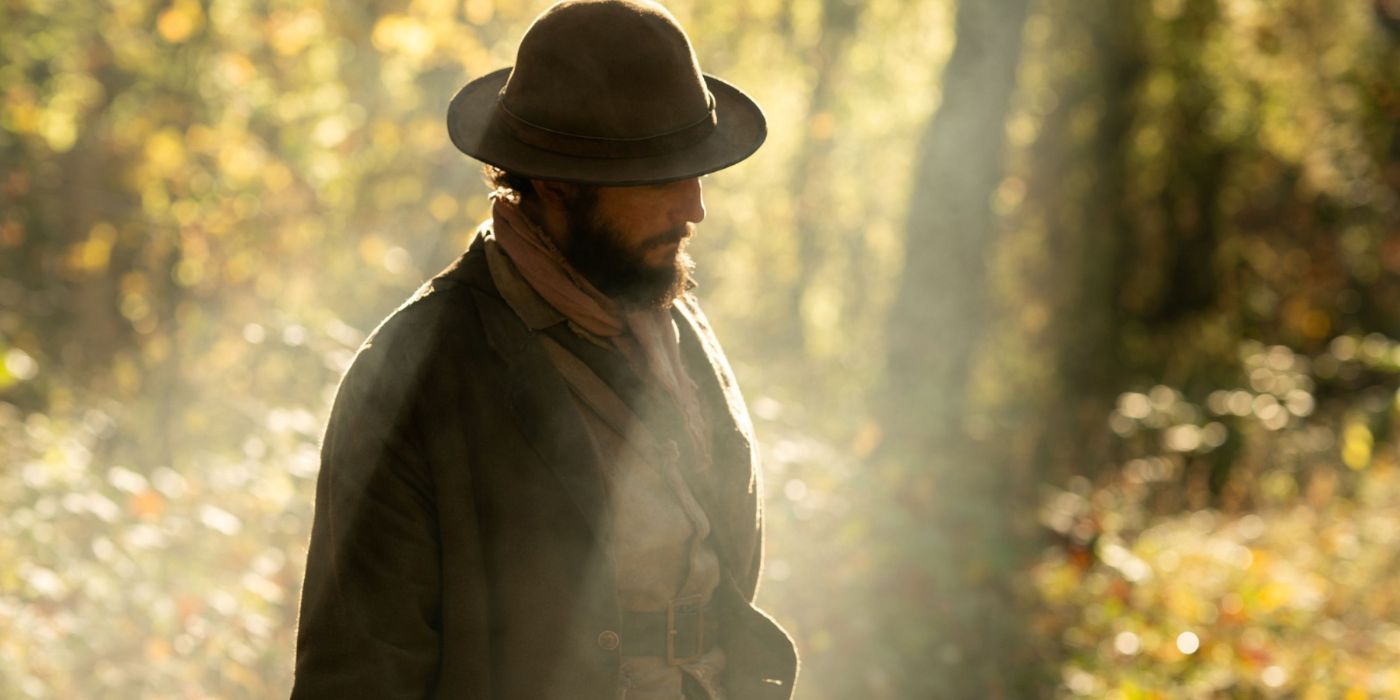Though the Golden Age of Westerns is far gone, filmmakers of today’s era still consistently manage to invigorate the genre in unexpected ways that speak to modern times, with Kelly Reichardt’s First Cow acting as a notable example of a Western brimming with a tenderness that elevates the genre to new levels. Unfortunately overshadowed by the COVID-19 pandemic, First Cow was quickly acclaimed as one of the greatest revisionist Westerns of the modern era, subverting the trope of the Western hero (and a Western plot) in pretty much every way imaginable. Instead of celebrating masculinity, First Cow celebrates the sensitive, whether its non-fighting men in a world of killers or an ignorant cow robbed of any agency of its own.
First Cow focuses on a simple premise that emphasizes male friendship in the face of the adversity that surrounds it. Set in 1820, it follows Otis (John Magaro) who earns the nickname Cookie for his ability to make the best buttermilk biscuits that the humble settlers of Oregon Country have ever tasted. After befriending King-Lu (Orion Lee), a Chinese immigrant on the run for murder, the two devise a scheme to sneak into the local Chief Factor’s (Toby Jones) farm to steal some of his prized cow’s milk (the first cow to ever arrive in the area, hence the title) in order to sell them to the townspeople. It sounds more like the plot of a rom-com than it does a gripping Western that concerns itself with love and mortality, which is exactly what makes it so great.
The first and most direct manner in which First Cow subverts the conventions of its genre is in its main character who’s introduced as a chef among fur trappers, reestablishing a hunter-gatherer dynamic to illustrate Cookie’s isolation. There’s no place in this ruthless world for Cookie’s masculine sensitivity, a role that completely subverts the John Wayne “man’s man” archetype. While complicated protagonists are certainly nothing new to the Western genre, feminine ones are even harder to find, with Cookie’s femininity increasingly commented upon not just through the fact that he likes to cook, but through his actions in testosterone-fueled situations.
The prologue of First Cow actually takes place in the present day, when a woman walking her dog stumbles upon the unmarked grave of two skeletons tenderly holding each other for 200 years. Flashing back to the 1800s, the audience is left to assume that they’ll be watching the story of how these two figures grew to love each other, implying the film to be a romance. Contrary to the expectations she sets, however, there’s no sexual tension that ever develops between Cookie and King-Lu. Instead, what transpires is the blossoming of a friendship, allowing for many deeper musings on the nature of immigration, male camaraderie, and a search for the finer things in a world that’s out to punish you at every turn.
Masculinity and capitalistic desire go hand-in-hand when discussing Westerns as they relate to individuals finding their place in a chaotic world and (most often) ultimately triumphing. These triumphs can often be used to express the cost of greed, as in The Treasure of the Sierra Madre or There Will Be Blood, though in First Cow, the critique revolves around the theme of privilege. This extends not merely to wealth but to physicality. The obvious analysis of privilege comes from the inception of Cookie and Lu’s scheme to milk the Chief Factor’s cow. In spite of this recurring heist taking place right under the Chief Factor’s nose, Cookie says to Lu that “Some people can’t imagine being stolen from,” relating to the carefree lifestyles of the wealthy in a world where everyone else appears poor.
Meta Data: {“keywords”:”First Cow, Western genre, tenderness”}
Source link
